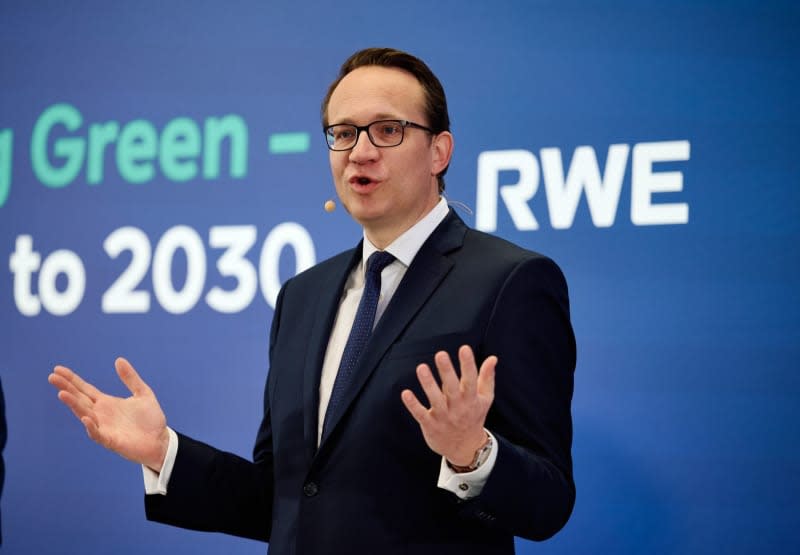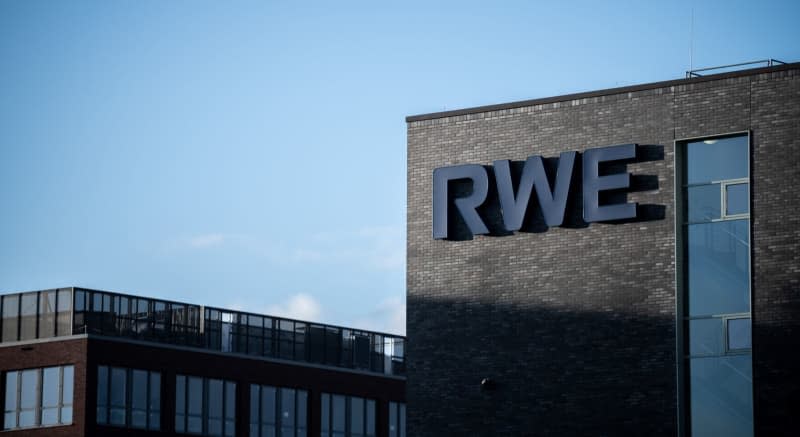Energy group RWE: Time of the essence for German power plant strategy

Energy group RWE is pressing for quick decisions on the unresolved issues of Germany's power plant strategy.
"So far, we only know the key points. Coordination with Brussels is still pending. The concrete form is still open. Time is now really pressing," RWE chief executive Markus Krebber said at the annual press conference in Essen on Thursday.
Germany has a Herculean task ahead of it to maintain security of supply, he said. "We have to completely replace our current backbone of supply security - nuclear energy and coal."
Krebber emphasized that the key points presented by the German government in February were clearly heading in the right direction. The tenders for hydrogen-capable gas-fired power plants planned in the short term are a start, he said.
"The first tenders must take place this year at the latest so that the power plants can go into operation before the end of this decade," Krebber continued, adding that it is important to ensure that auction winners actually build. "As we need the capacity quickly, it must be ensured that it is actually built and not just seen as an option to be able to build."
Krebber confirmed the company's intention to participate in the tenders. RWE wants to build facilities to produce a total of at least 3 gigawatts by the end of the decade and can imagine building even more. "Whether we can achieve the 3 gigawatts by the end of the decade will of course depend on when the tenders take place and how quickly the planning and approval processes can be accelerated."
At the moment, he assumes that it is still feasible. RWE can also imagine even more in the next 30 years. "We are also working on developments at sites not only in North Rhine Westphalia, but also outside of it, to prepare more," Krebber continued.
The German government presented the key points of a strategy for the construction of hydrogen-capable gas-fired power plants in Germany at the beginning of February. The power plants are to generate electricity in a climate-neutral energy system when the sun is not shining and the wind is not blowing.
In addition to the tenders, the German government wants to develop concepts for a so-called capacity mechanism. A political agreement on this is to be reached within the federal government by the summer. Such a mechanism could be used to reward operators for maintaining power plant capacities.
Krebber welcomed the announced introduction of a capacity mechanism. "We know from other countries how well this instrument is suited to guaranteeing security of supply at reasonable prices," he said.
Earlier on Thursday, RWE confirmed its business expectations for the current year.
The company said it continues to assume it will not be able to match the "very good" earnings situation of 2023 in 2024.
The energy company expects earnings before interest, taxes, depreciation and amortization (EBITDA) adjusted for one-off effects to be in the range of €5.2 billion ($5.7 billion) to €5.8 billion in 2024 - as already announced in November.
"Due to the recent significant drop in power prices on the European wholesale markets, we expect a figure at the lower end of the forecast range," RWE chief financial officer Michael Müller said.
The same applies to the adjusted net income of the core business, which the company expected to be between €1.9 billion and €2.4 billion, he said.
RWE confirmed the business figures for 2023 presented at the end of January, according to which adjusted EBITDA rose from €6.3 billion to just under €8.4 billion.
Adjusted net income totalled €4.5 billion in 2023, up from €3.2 billion in the previous year. Shareholders are to receive €1.00 per share for 2023 and the dividend target for 2024 remains €1.10.


